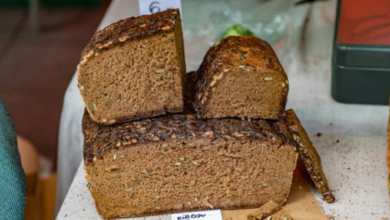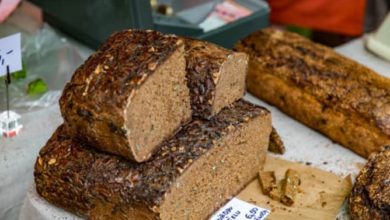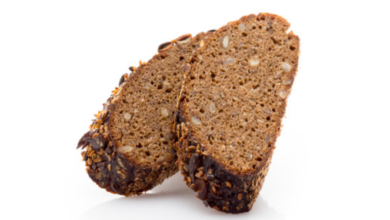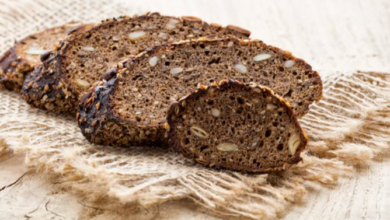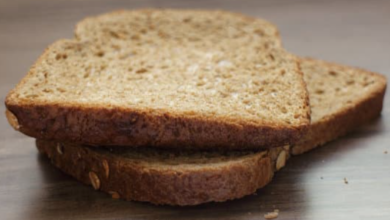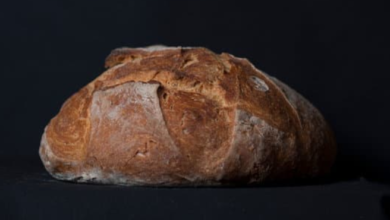How Long Does Rye Bread Take To Rise? Here’s What You Should Know
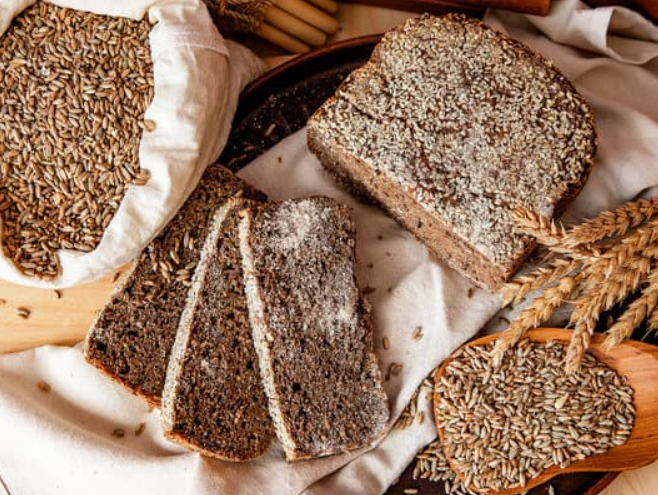
What To Know
- A dough with higher hydration will rise more slowly, while a dough with lower hydration will rise faster.
- Just before baking, the loaves are gently turned out onto a baking sheet and allowed to proof for a final time.
- By carefully controlling the temperature, hydration, and proofing times, you can achieve the perfect loaf with a beautiful rise and a delicious tangy flavor.
Rye bread, with its distinctive tangy flavor and dense texture, is a beloved staple in many households. However, its rising time can be a mystery to novice bakers. Understanding the factors that influence the rising process is crucial for achieving the perfect loaf.
Factors Affecting Rye Bread Rising Time
1. Type of Flour
Rye flour contains less gluten than wheat flour, which means it traps less gas during fermentation. This results in a slower rising time compared to wheat bread.
2. Sourdough Starter
Sourdough starters, made from a mixture of flour and water, contain wild yeast and bacteria. The fermentation process can take several days, contributing significantly to the bread’s rise.
3. Temperature
Yeast activity is optimal at temperatures between 75-85°F (24-29°C). Maintaining this temperature range ensures proper fermentation and rising.
4. Hydration Level
The amount of water in the dough affects its consistency. A dough with higher hydration will rise more slowly, while a dough with lower hydration will rise faster.
5. Proofing Time
Proofing refers to the final rise of the shaped dough before baking. The proofing time varies depending on the temperature and the desired level of sourness.
Stages of Rye Bread Rising
1. Bulk Fermentation
After mixing the ingredients, the dough undergoes an initial rise known as bulk fermentation. This stage takes several hours, during which the yeast consumes the sugars in the flour and produces carbon dioxide gas.
2. Shaping and Proofing
Once the dough has risen sufficiently, it is shaped into loaves and placed in proofing baskets. The proofing process continues for several hours, allowing the dough to expand further.
3. Final Proofing
Just before baking, the loaves are gently turned out onto a baking sheet and allowed to proof for a final time. This short proof helps to ensure an even rise in the oven.
Ideal Rising Times
The ideal rising times for rye bread vary depending on the factors mentioned above. However, as a general guideline:
- Bulk Fermentation: 8-12 hours
- Proofing: 2-4 hours
- Final Proofing: 30-60 minutes
Troubleshooting Rising Problems
1. Slow Rising
- Check the temperature and adjust it to the optimal range.
- Ensure the sourdough starter is active and healthy.
- Increase the hydration level of the dough slightly.
2. Fast Rising
- Reduce the temperature or the hydration level of the dough.
- Proof the dough in a cooler environment.
3. Uneven Rising
- Ensure the dough is evenly mixed and shaped.
- Proof the loaves in a warm, draft-free environment.
Tips for Successful Rye Bread Rising
- Use a high-quality rye flour with a good gluten content.
- Feed your sourdough starter regularly to keep it active.
- Maintain a warm and consistent temperature during fermentation.
- Adjust the hydration level of the dough to suit your desired rising time.
- Proof the loaves in a warm, draft-free environment.
- Be patient and allow the dough to rise at its own pace.
The Art of Rye Bread Rising
Understanding the factors that influence rye bread rising time is an essential skill for bakers of all levels. By carefully controlling the temperature, hydration, and proofing times, you can achieve the perfect loaf with a beautiful rise and a delicious tangy flavor.
Basics You Wanted To Know
Q: Why does rye bread take longer to rise than wheat bread?
A: Rye flour contains less gluten than wheat flour, which means it traps less gas during fermentation.
Q: Can I use commercial yeast to make rye bread?
A: Yes, you can use commercial yeast, but it will result in a different flavor and texture than traditional sourdough rye bread.
Q: How can I tell if my rye bread dough is ready to bake?
A: The dough should have doubled in size and be springy to the touch. When you poke it gently, it should slowly bounce back.
